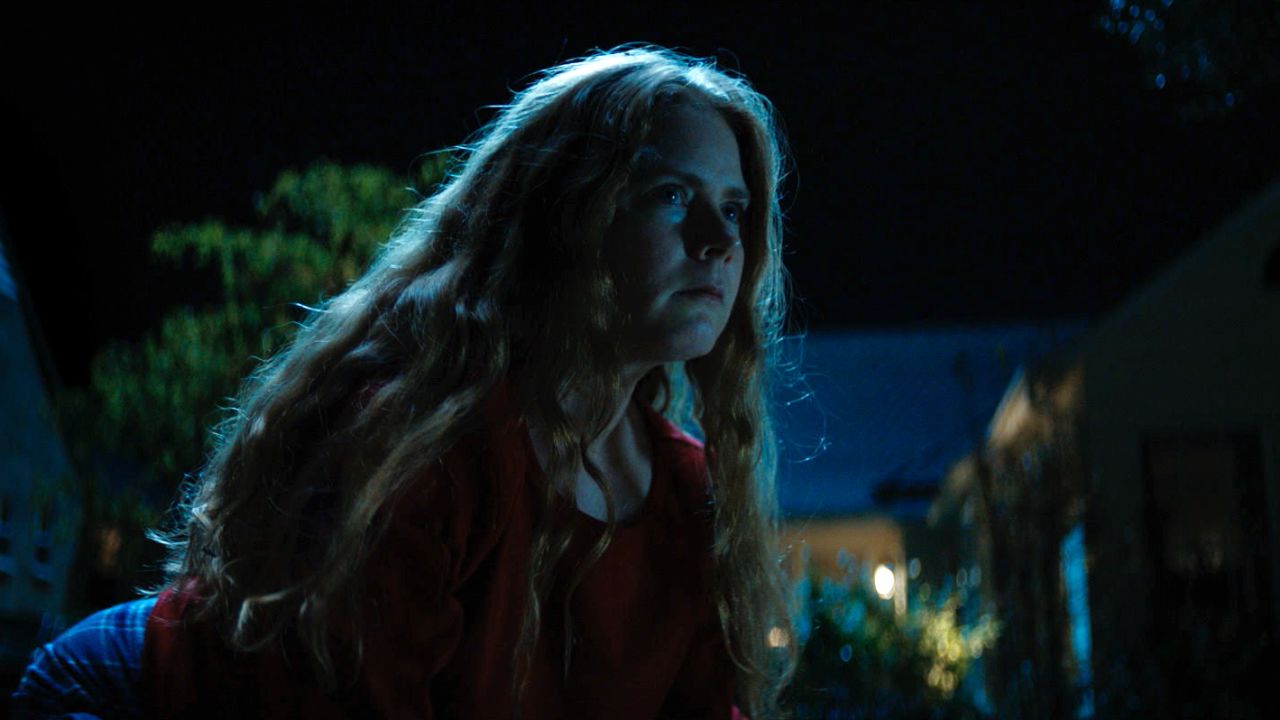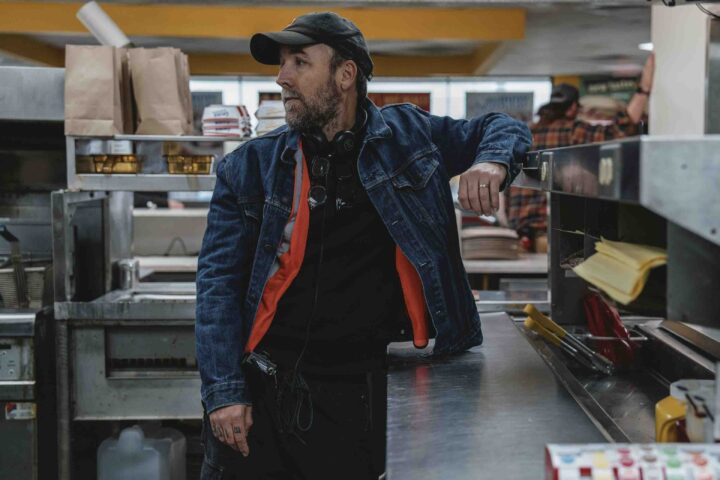A thirty-something coworker recently vented her frustration with society’s suffocating insistence that motherhood is the pinnacle of a woman’s fulfillment. This came after enduring yet another round of nosy relatives asking, “When are you starting a family?” paired with the patronizing, “You’ll change your mind!” I was reminded of her words watching Amy Adams deliver what may be career-best performance in Marielle Heller’s Nightbitch, adapted from Rachel Yoder’s audacious 2021 novel. In a picture blending sharp satire, surrealist comedy and emotional realism to expose the unspoken costs of modern motherhood, Adams plays a former Manhattan artist whose rising career is shelved for the supposed idyll of suburban mom life—a choice leaving her unfulfilled and ever drifting from her sense of self. Her solution? To metamorphose into a dog and break free. Naturally.
When we meet her, “Mother” is depleted and defeated, chasing after her tornado of a toddler (energetic Arleigh and Emmett Snowden) while dodging overbearing suburban mom cliques and soul-numbing kiddie singalongs at the local library. Her husband (a perfectly oblivious Scoot McNairy) remains aloof and absent, perpetually “away for work,” leaving her stranded in a lopsided arrangement where her sacrifices go unnoticed. Theirs was a straightforward deal—she would pause her career to raise their son. But the crushing reality of that choice has left her grappling with exhaustion, resentment and a dissolving sense of identity.
Heller’s high-wire direction masterfully juxtaposes back-breaking domestic scenes of with bursts of biting rage and escapism, including an early, fleeting encounter with a former colleague (Adrienne Rose-White) that triggers a fantasy monologue illustrating Mother’s disillusionment and lament for her pre-motherhood self. Such sequences, oscillating between wry humor and honest feeling, capture the loneliness of a woman whose love for her child is inseparable from her despair at losing herself. Why didn’t anyone warn her it would be this hard? And what happens when motherhood’s joys don’t align with her aspirations—or limits?

Mother’s refusal to assimilate into suffocating norms is suggested as both rebellious and self-protective, as when rejecting forced camaraderie with a hilarious trio of new moms (Zoe Chao, Mary Holland, and Archana Rajan), in a sort of revolt against being reduced to a generic collective of self-sacrificed caregivers. “Why should we hang out just because we have kids?” she ponders—a question both radical and rhetorical.
The film’s magical-realist turn arrives as Mother’s frustrations literally manifest in her body. Coarse hair sprouts, her teeth sharpen and she discovers new, um, anatomical features (extra nipples) that signal her transformation into—get this—a feral, nocturnal canine. This metamorphosis, rendered with dark humor, is both grotesque and exhilarating—and is presented as a reclamation of agency; a primal rebellion against a world that has stifled her. As she prowls the night, the family cat, cluelessly living on borrowed time, hilariously teeters toward collateral damage.
Guided by a kindly librarian (a pitch-perfect Jessica Harper) and a mythical book titled A Field Guide to Magical Women, Mother begins to confront her unfulfilled dreams while recalling buried memories of her own depressed mother’s (Kerry O’Malley) thwarted artistic ambitions. Through her alter ego, she confronts the sacrifices expected of her and resurrects the wildness she has buried, which includes enveloping her son in increasingly bizarre games, such as eating from dog bowls or without hands (in public food courts, no less).
Adams, who put on significant weight for the role, anchors this absurdity with a performance that is as raw as it is transformative. Her physicality, from exhaustion to ferocity, makes Mother’s journey feel tactile and deeply personal. And McNairy’s subtle portrayal of “Husband” (note, not “Father”) conveys a man both complicit in and oblivious to the inequities of their marriage. Their shared scenes late in the film are strikingly intimate, especially when he finally asks, “What happened to my wife?” Her brutal reply—“She died in childbirth”—lands with the full weight of a life finally clawing its way out of stasis.
Heller’s adaptation is a genre-defying mastery of tone, somehow fusing surrealist comedy, body horror and social commentary into an unlikely, cohesive whole. The film’s third act crescendos to an unexpected catharsis with much to say about unspoken truths of modern marriage. Throughout Adams carries the film, deftly straddling its demands in a risk-reward proposition that pays off with exhilarating, pitch-black pathos.
Highly recommended.
3 1/2 stars



